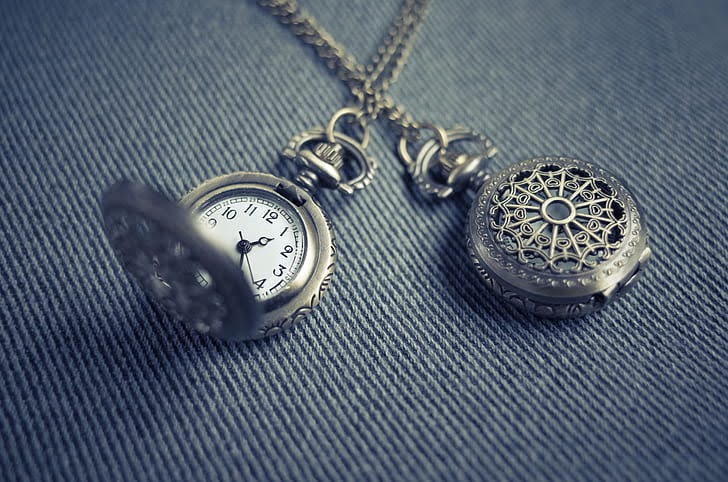There are lots of pictures on your staircase wall. The high school graduation pictures, a couple of baby photos, and assorted vacation shots are up there. The one at the top of the stairs is a portrait of your oldest in her prom dress wearing a locket her grandmother gave her for her birthday. Now, that locket hangs on the side of the frame so everyone can enjoy how pretty it is. It is a keepsake for her. It reminds her of her prom night and the person who gave it to her.
Although the silver it is made of does hold monetary value, the real value lies in the giver, not the gift. It is special to your daughter not because it is a necklace, but because it is a necklace from her grandmother.

What is a Keepsake?
A keepsake is a physical reminder of a person, place, or event. It is a memento, a souvenir, or a token of someone or something that holds emotional significance. It could be a gift, like your daughter’s necklace, or a photograph, an article of clothing, or a book. It could be almost anything because it isn’t what it is that is special, but who it is from or the memory it represents.
A box can also be a keepsake, or it can hold certain items from a specific meaningful time in your life, like a keepsake box for love letters written during military deployment. The box is special because of what it holds and not just because it is a nice container.
What is the Importance of a Keepsake?
Memories are precious. Especially memories of family members who have passed. When you have a keepsake from a loved one you have lost, you have a part of them with you still. Their memory stays fresh and alive in your heart every time you wear the scarf, read the book, or make the recipe that was given to you. The importance of a keepsake lies in who gave it to you, where it is from, or what memories you associate with it.
A keepsake isn’t just important for honoring loved ones who have passed, though. It can also hold significance for the here and now, and the memories you are building today to leave with your loved ones in years to come. A keepsake can be important because it can be a gift you give now with the intention of it becoming a memento of today, a special day, for you and your family.
A great example of this is a family album or scrapbook. It is a one-of-a-kind book that may not have much monetary value but is priceless to you. It is important because it is irreplaceable, historic, and meaningful.
What are the Benefits of a Keepsake for Your Family?
A keepsake benefits your family in a variety of ways. These include:
- Shows love. By displaying the locket from her grandmother, your daughter is showing just how much she loves and appreciates her. Vice versa, the gift of the keepsake shows love from her grandmother to your daughter. This builds a strong family connection.
- Helps with the grieving process. Because of the emotional connection between the item and your memory of a person, a keepsake can help with the grieving process. For example, if you have a painting from a loved one who has passed, hanging it in your home can help you honor their memory and move you through the stages of grief smoothly.
- Keeps happy memories alive. If you have a keepsake from a special event, like a trophy from a tough competition, then it encourages positive feelings and is a boost to your mental health.
- Inspires family traditions. The recipe book you used to teach your son how to cook may not be a keepsake yet, but it could become one. If you hand it down to him as a keepsake from his childhood, he may be inspired to teach his children from it and create a family tradition.
- Reinforces family identity. The memories associated with the keepsake strengthen your family and reinforce your identity through shared experiences and common history. You and your loved ones understand the story, connection, and meaning of the keepsake, and this bonds you together.
The emotional, social, and mental health benefits of a keepsake show that it is not a bad thing to give! Choosing to give one or cherish one that was given to you helps you today and has the potential to help generations that come after you.
How Can You Pass on a Keepsake?
Passing on a keepsake can be a simple gesture or a drawn-out occasion. How you do it depends on what it is and what the memories linked to it are.
You can buy a keepsake from a special place, like a honeymoon, and pass it to your loved one then or later as a memento of your experience.
A keepsake can be passed on in a will. This uses a legal process to define which family members receive important items and can prevent arguments.
Giving or receiving a keepsake can be as different and original as the item itself. There is no right or wrong way to pass one on, and sometimes how a keepsake is given is just as special as the item itself.
Keep in mind that a keepsake doesn’t have to be a gift. It can be something you have that reminds you of a person, place, or thing that is significant to you. You can be the one to decide it is truly a keepsake.
If you are in the process of selecting keepsakes and would like help organizing the things you or a loved one has accumulated, we are here for you. We have over 20 years of experience helping people just like you. You can contact us here.
